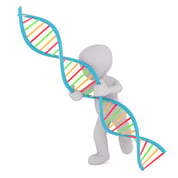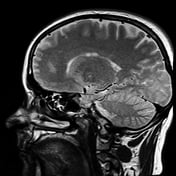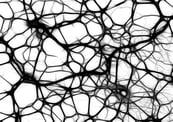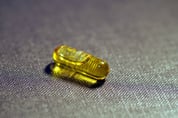
This current news release is provided by Stages Learning. Stages Learning provides award winning learning tools and other resources for children with autism for parents, teachers, and therapists.
 Link between stress and gastrointestinal problems in children with autism
Link between stress and gastrointestinal problems in children with autism
Study revealed that following the induced stress test, autistic children with gastrointestinal symptoms had greater cortisol levels than children who did not suffer from gastrointestinal problems. Read more...
Medication to reduce weight gain for children with autism
Some medications lead to unnecessary weight gain in autistic children. The study found that the diabetes medication metformin hydrochloride may help fight weight gain and is reasonably tolerated by children.
 10 most notable research papers of 2016
10 most notable research papers of 2016
As research into autism cases and treatment options expands every year, 2016 has seen several notable research articles helping understand autism better. As the year ends, Spectrum News complied a special report listing most exciting research reports. Read more...
 Adolescents with autism need support services, a study finds
Adolescents with autism need support services, a study finds
As children transition into adulthood, they often lose access to special support services. A new qualitative study examined the adolescents' need for assistance with social and medical resources and psychological support. Read more...
 Spontaneous DNA mutations found to double the risk of autism
Spontaneous DNA mutations found to double the risk of autism
Large scale study finds that mitochondrial mutations in many copies of the DNA are associated with higher risk of autism. Heavier mutations increase the risk of developing a more severe form of autism. Read more...
Low levels of key brain development proteins linked to autism causes
levels of key brain development proteins linked to autism causes
Decrease in the levels of a brain protein called nSR100, or SRRM4, in mice lead to increased signs of autism, such as avoiding social interaction and sensitivity to noise. Scientists at the University of Toronto argue that the cause of autism lies in incorrectly spliced proteins in the brain cells. Read more...
Attention to detail in autism is explained by increased brain symmetry
Increased symmetry between the left and right sides of the brain in autistic children was found to contribute to the increased ability to observe details in the environment. This advantage comes at the expense of the ability to integrate details into a coherent picture, such as, by analogy, seeing the trees but not the forest, an fMRI study at San Diego State University finds. Read more...
Vi sual processing difficulties in infancy among autistic children related to delay in speech
sual processing difficulties in infancy among autistic children related to delay in speech
New study links early word learning to the richness and regularities in the infant's environment during mealtime. Autistic children may not process visual regularities the same way as typically developing children do. Researchers encourage parents to draw infants' attention and name repeatedly seen everyday objects to facilitate early word learning. Read more...
Links between autism and flu vaccines unfounded
Newly published in JAMA Pediatrics, a large scale study finds no association between a mother having flu during pregnancy and an increased risk of giving birth to a child with autism. Read more...

The largest genetic nation-wide research study to date seeking participants
Simons Foundation Powering Autism Research for Knowledge (SPARK) is recruiting 50,000 families affected by autism across the nation to collect DNA samples and additional demographic and behavioral data. Read more...
Smartphone App detects early sign of autism usign eye-tracking
University of New York undergraduate developed an app to incorporate recent technological advances in tracking young children's eye movements in response to social scenes, allowing for early detection of signs of autism. Read more...

Functional MRI scans may predict which children will benefit from Pivotal ResponseTreatment
Two studies examined ways to enhance effectiveness of behavioral therapy in children with autism. In one study, researchers reported that functional MRI (fMRI) could accurately predict which children will benefit from Pivotal Response Treatment (PRT). Another study showed that autistic children have greater social motivation and social perception after nasally administered oxytocin, suggesting new potential developments for effective therapy. Read more...

Neuroscience helps customize treatment choices for preschoolers with autism
Yale University study finds that observing the brain activity of preschool children with autism using fMRI can help predict their response to treatment, allowing to customize treatment. Read more...

Efficacy of early behavioral parental training randomized controlled trial challenged
Large long-term study published in The Lancet journal causes controversy. Results suggest that early behavioral parental training may lead to lasting gains; children whose parents received the six months training communicated more often than those with untrained parents: read more... However, not everyone agrees with such results interpretation: read more...
Promising results from Vitamin D supplements for autism treatment
Randomized controlled trial reports benefits of vitamin D supplements for children with autism. Published in the Journal of Child Psychology and Psychiatry, the study showed that autism symptoms--such as hyperactivity, social withdrawal, and others--improved significantly following vitamin D3 supplementation but not after receiving placebo. Read more...
Participating in music lessons beneficial for children with autism
Participating in music lessons increases brain connectivity: Radiological Society of North America publishes a study on benefits of musical training for children with autism and Attention Deficit Hyperactivity Disorder (ADHD). Read more...





